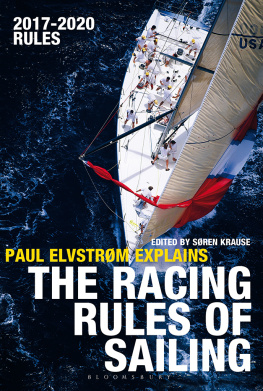THE STORY OF PAUL BOYTON
VOYAGES ON ALL THE GREAT RIVERS OF THE WORLD, PADDLING OVER TWENTY-FIVE THOUSAND MILES IN A RUBBER DRESS
A RARE TALE OF TRAVEL AND ADVENTURE
THRILLING EXPERIENCES IN DISTANT LANDS, AMONG STRANGE PEOPLE. A BOOK FOR BOYS, OLD AND YOUNG.
To my beloved and gentle wife, whose patience and help have enabled me to present the public the story of my life. Paul Boyton
CONTENTS.
CHAPTER I.-On the Allegheny. First Attempt at navigation. The Grey Eagle. Voyage on a coal fleet.
CHAPTER II.-College days. Bruce's dam. The Fort of the Wild Geese.
CHAPTER III.-In the U. S. Navy. A voyage to the West Indies. Diving for treasure.
CHAPTER IV.-Wrecking with Captain Balbo. In the hull of a slaver. A swarm of sharks. Joining the Mexican revolutionists.
CHAPTER V.-Entering the life saving service. Grateful people. In the Franco-Prussian war. Failure of the Cuban expedition.
CHAPTER VI.-As a submarine diver. The Diamond fields of Africa. A floating Hell. An escape at Malaga.
CHAPTER VII.-The rubber dress. Overboard from the steamer Queen. Landing on the coast of Ireland.
CHAPTER VIII.-Arrival in Queenstown. The first lecture. In Dublin. Appearance before Queen Victoria.
CHAPTER IX.-Voyage across the English Channel. Pigeon dispatches. Landing in England.
CHAPTER X.-In Germany. A voyage down the Rhine. Through the whirlpool of Lurlei. The press boat.
CHAPTER XI.-A short run on the Mississippi. The funny Negro pilot. Down the Danube and the Po. Attacked by fever. Lucretia Borgia's castle.
CHAPTER XII.-Voyage on the Arno from Florence to Pisa. Narrow escape over a fall. Down the Tiber to Rome. Across the bay of Naples. Knighted by King Victor Emmanuel.
CHAPTER XIII.-The Straits of Messina. Attacked by sharks. Whirlpools of Scylla and Charybdis. Lake Trasimene.
CHAPTER XIV.-Quick voyage down the Rhone. The smugglers' chain. The gambling palaces of Monte Carlo. Down the Loire. In the Quicksands.
CHAPTER XV.-On the mysterious Tagus from Toledo to Lisbon. Over great falls and through dark canons. Ancient Moorish masonry. The villianous brigands.
CHAPTER XVI.-From Europe to Africa, across the Straits of Gibraltar. Preparing for sharks. Contrary currents and heavy overfalls. Landing at Tangier.
CHAPTER XVII.-Paddling in the ice floes on the Allegheny. Down the Ohio to Cairo. Queer characters. On the Mississippi. Strange sights and sounds. The comical darkies. Alligators. "Dead man in a boat."
CHAPTER XVIII.-Voyage on the Merrimac. Some peculiar people. A rough trip down the Connecticut. Lost in a Snow Storm. A winter in Florida.
CHPATER XIX.-Off for South America. An officer in the Peruvian service. Placing torpedoes. Caverns of the sea. Inca Tombs. An escape from prison and rescue from a lonely island.
CHAPTER XX.-The Upper Mississippi. The German Doctor and the negro boatman. Arrival at Cairo. Hunting and fishing.
CHAPTER XXI.-The longest voyage. Down the Yellowstone and Missouri. Thrilling adventures through the western wilds. In the tepees of the Indians. Caving banks, snags and mud sucks. Camp of the Rustlers. Arrival in St. Louis.
CHAPTER XXII.-Hunting in Southern bayous. An interesting voyage down the Arkansaw. Haytien insurgents. Down the Sacramento. A night on Great Salt Lake. Down the Hudson. In the ice on Lake Michigan. Catching seals.
CHAPTER XXIII.-Boyton to-day.
CHAPTER I.
One bright day in July, 1858, two women carrying well filled market baskets, were crossing the old Hand Street bridge that spans the Alleghany River between Pittsburgh and Alleghany City, Penn.
"Oh, Mrs. Boyton, do look at that child in the middle of the river paddling around on a board."
"Well," said the one addressed as Mrs. Boyton, "I'm glad it is none of mine. My son Paul, loves the water dearly, but I took the precaution to lock him up before I started for market."
After observing the child, who was evidently enjoying his aquatic sport, for some time, the two women proceeded on their way. On reaching home, Mrs. Boyton, with a feeling of remorse for keeping her young son so long in captivity, went up stairs to release him, and to her consternation found that he had escaped. Three minutes later an excited woman stood on bank of the Alleghany, vigorously waving her hand and hailing the youthful navigator. The forward end of the one by twelve inch board was reluctantly headed for shore, and slowly idled in. As the child reached land, he was grasped by the angry and anxious mother, who beat a merry tattoo on a tender portion his body with a shingle.
This was not the first time that the young hero had received punishment for loving the water. His home was within one block of the clear and swift flowing Alleghany; and whenever he could escape the vigilant eye of his mother, he was found either on the bank or in the water. One day, Mrs. Boyton, who had a continual dread of his being drowned, was going on a visit, and she determined to secure Paul against accident. She took him upstairs, undressed him and removed his clothes from the room. She locked the door and went away content.
The day was lovely; the water lay clear and blue in sight and Paul could hear the delighted cries of the boys as they plunged into its refreshing depths. The temperature was too strong. Paul searched the room carefully and to his joy, discovered a pair of his father's drawers. He got into them and tied the waist-string around his neck. Then forcing a window, he slid down the convenient lightning rod like a young monkey, and was found in his usual haunt by his astonished mother some hours later. From this time on, she gave him more liberty to follow his natural bent. From early May until late in October, when not at school, Paul spent most of his time in the water.
In those days, driftwood, consisting of slabs, logs and boards, were continually floating down the river from the headwaters, where the great forests were being cut down. When he saw a nice piece of wood, Paul would cut through the water like a young shark, and swim with it ahead of him to the shore, where his lumber pile was a goodly sized one. He kept his mother's cellar well supplied with firewood and sold the surplus to the neighbors; the proceeds of wich were devoted to gingerbread and even at that early age to the abominable roll of tobacco known as the "Pittsburgh Stogie."
Great rafts of lumber were coming down the river daily and a favorite amusement when he saw one, was to run up the river bank about a quarter of a mile, swim off and board it. In this way he became acquainted with many of the hardy "buck-tail" boys who piloted the huge rafts down the river. His knowledge of the different bars that were formed by the bridge piers was utilized, and often proved of great assistance to his friends, the raftsmen. One day, he boarded a raft, the captain of which was evidently a stranger to the channel in the vicinity of Pittsburgh, and Paul saw that it was certain to run aground. He told the captain and was so earnest in his manner, the course was ordered changed. Less than 500 yards further down, the ugly bar showed up not five feet from the side of the raft, as it went gliding by. The raftsman insisted on keeping the little fellow by his side until he was safely moored to the Pittsburgh shore; then as a reward for his services, presented Paul with a little flat boat about twelve feet long by five feet wide and ordered two of the crew to tow it with a skiff to the Alleghany side.











![Paul Muldoon [Paul Muldoon] - Poems 1968-1998](/uploads/posts/book/83661/thumbs/paul-muldoon-paul-muldoon-poems-1968-1998.jpg)
